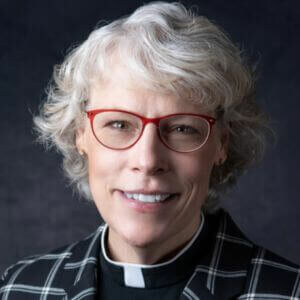When I was in the 8th grade, my dear confirmation pastor spent a lot of time one Saturday morning explaining to us how evolution could not have happened. His argument had to do with a horse and a donkey breeding to produce a mule, and the mule being sterile. I was puzzled as I headed home. I asked my dad what he thought. Dad said, “I believe God created everything. I don’t know exactly how he did it.” In this way, Dad side-stepped the creation/evolution controversy. I’ve always been grateful for his answer.
I had the best confirmation pastor anyone could hope for, but my pastor was likely interested in a question that the book of Genesis was not written to answer. The creation stories current in the Ancient Near East when Genesis was being composed were often battles between opposing gods, or they featured two gods creating the world by means of sexual union. Genesis 1 does not have violence or sex at its center, but rather a God who speaks creation into existence and declares it very good.
In Genesis 1, God begins with the earth as a formless, dark void, and God says, “Let there be light.” God creates with a Word. By speaking, God brings order, light, and life to the chaos and darkness. This insight is important for much of our theology: we speak of Jesus as the Word made flesh. We believe that sins can be forgiven with a word that is spoken by Christ’s authority. We trust the promises God speaks in words like, “Behold I am with you,” and “This is my body, given for you.” God’s Word creates and sustains all that is.
If things were formless and void at the start, they are ordered and filled as a result of God’s Word. In the first three days, God creates the major domains of creation: light; sky and the division of the waters; land and plants. God spends the next three days populating the creation with heavenly bodies; water animals and sky animals; and land animals, including humans.
Six times, the author tells us that God judged creation “good,” and a seventh time God calls it, “very good.” We are not sure what it means that humans are created in the image of God, though Christian scholars sometimes see in this a reference to the communal (three-in-one) nature of the Trinity and humankind being created also for community with each other and with God.
On the seventh day, God rests and so hallows a sabbath day not just for God, but also for creation. (You might not think you need a day off every week, but if it’s good enough for God, it’s probably good enough for you!) Genesis 1 shows us a generous, creative God, blessing all that God makes and having time left over to rest.

Mary Hinkle Shore lives in Brevard, NC, with her husband, Hank, and their pets, Riley and Leslie, who were surely created very good. She teaches in the Synod Authorized Ministers program and writes for Working Preacher and Enter the Bible, among other publications.
To Consider
1. Where do you see the goodness of creation? What does it mean for humanity to care for a good creation?
2. What would you need to rest from in order to rest as God did?
Prayer
Thank you, God, for all that you have made. Help us to see your goodness reflected in the beauty of creation. Bless us that we may be good stewards of the earth and its fullness. Amen.
